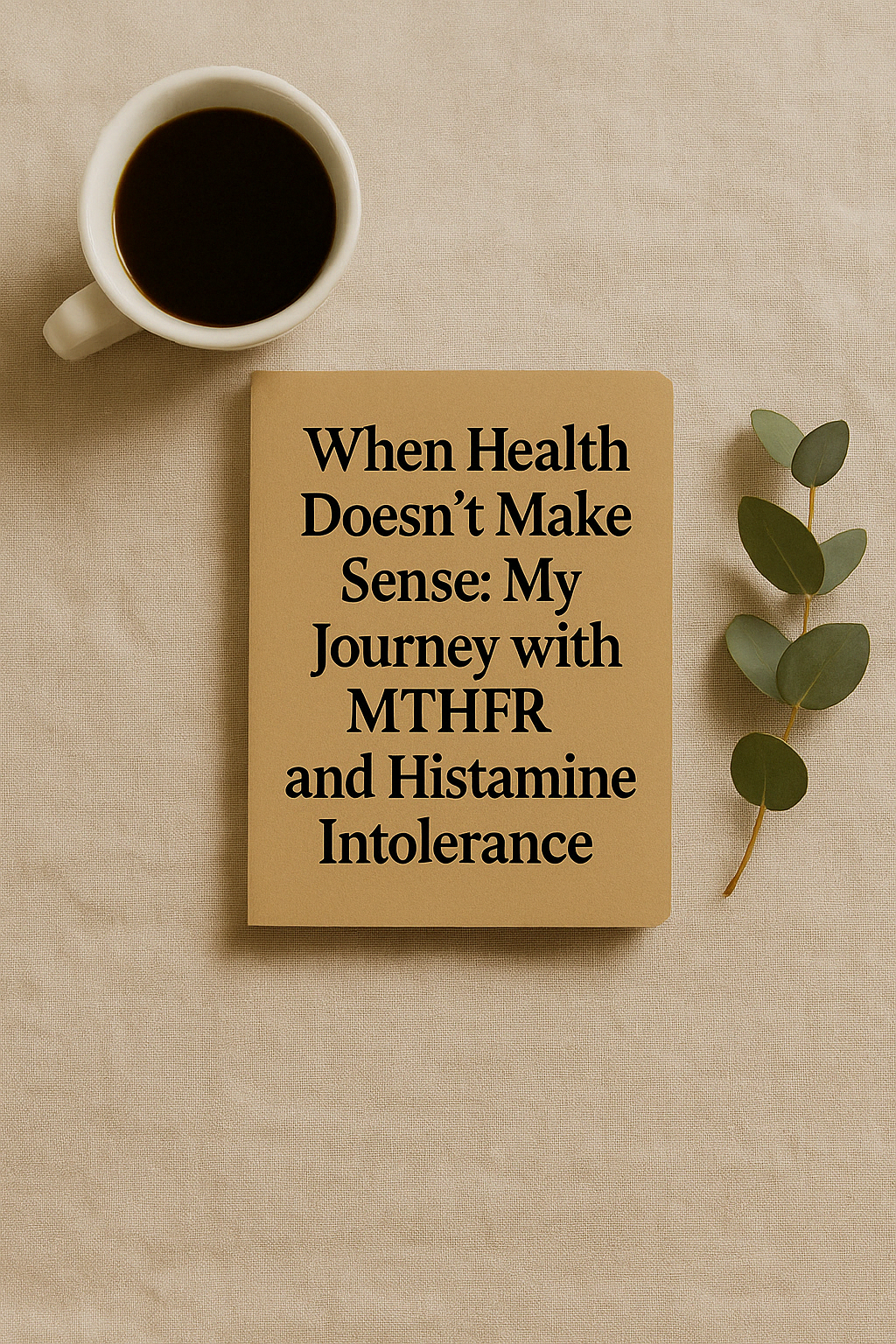
When Health Doesn’t Make Sense: My Journey with MTHFR and Histamine Intolerance
By Rachel Weaver
For most of my life, I thought feeling "off" was normal. Headaches would strike without warning, my skin would flare up unexpectedly, and I would have days filled with brain fog, anxiety, or an overwhelming sense of exhaustion—like my body was waging a silent, invisible war.
Each time I sought answers, my labs came back “normal,” and I began to wonder if it was all in my head.
It wasn’t.
Years (and a lot of digging) later, I discovered something that changed everything: I have a genetic mutation called MTHFR, along with several others that affect how my body processes histamine, detoxifies, and balances neurotransmitters. Suddenly, the puzzle pieces started to fit.
Supplements That Made a Difference
Methylated B12
I use Hydroxycobalamin and Adenosylcobalamin instead of Cyanocobalamin, which is the synthetic form commonly found in over-the-counter supplements.
Cyanocobalamin contains a cyanide molecule that must be detoxified by the body—a process that can be inefficient or problematic for those with MTHFR mutations.
Hydroxycobalamin is a non-methylated form that the body can convert as needed, making it ideal for those sensitive to over-methylation. Adenosylcobalamin supports mitochondrial health and energy production. I started with just 250–500 mcg daily and gradually increased based on how I felt.
L-Methylfolate
Unlike folic acid, which many individuals with MTHFR cannot convert efficiently, L-methylfolate is the active form of folate the body can use. On supplement labels, look for names like L-5-Methyltetrahydrofolate, 5-MTHF, or Quatrefolic®.
I began with a low dose (200–400 mcg daily) to avoid symptoms of over-methylation like anxiety or irritability.
Magnesium Glycinate
A calming form of magnesium that supports the nervous system and detox pathways—especially critical since methylation influences how well we eliminate toxins.
Riboflavin (Vitamin B2)
Riboflavin acts as a crucial cofactor in the methylation cycle, helping the other B vitamins function properly. Without enough B2, even a solid folate and B12 regimen can fall short.
Histamine Support: Lowering the Load & Improving Clearance
With histamine intolerance, it became just as important to lower the burden as it was to support clearance. Here’s what helped me find balance:
DAO Enzyme Supplements
Diamine Oxidase (DAO) is the enzyme responsible for breaking down histamine in the gut. Some people, especially those with AOC1 mutations, produce too little of it. Taking DAO supplements 15–30 minutes before high-histamine meals (like leftovers, fermented foods, or red wine) helped me reduce symptoms like headaches, flushing, and bloating.
Quercetin
A plant-derived mast cell stabilizer that helps reduce histamine release. I take it consistently—especially during allergy season or stressful times. I started with 250–500 mg daily and worked up slowly.
Vitamin C
A natural antihistamine and cofactor for DAO. Buffered forms (like sodium ascorbate) are gentler on the stomach. A few 250–500 mg doses throughout the day helped reduce skin and sinus symptoms.
Zinc
Supports DAO production and helps calm immune reactivity. I use 15–30 mg of zinc picolinate or bisglycinate, taken in the evening, away from other minerals.
Functional Medicine Testing: The Turning Point
It wasn’t until I explored functional medicine testing that things started to make sense.
I was tired of chasing symptoms, trying elimination diets, and second-guessing every supplement. Traditional labs said I was “fine”—but I didn’t feel fine.
I began with a genetic test to identify key SNPs (single nucleotide polymorphisms)—small gene variations that affect detox, hormone metabolism, inflammation, and nutrient processing. Discovering mutations in MTHFR, MTR, MTRR, DAO, and HNMT gave me a framework to work from.
Then I layered on additional testing:
-
Comprehensive gut testing (for dysbiosis, leaky gut, imbalances)
-
Hormone panels (for cortisol, estrogen metabolism, adrenal health)
-
Micronutrient testing (for B vitamins, zinc, magnesium, antioxidants)
It was more in-depth—and more expensive—than conventional labs, but it gave me what I had been missing: root cause clarity. I wasn’t masking symptoms anymore. I was finally supporting the system behind them.
Living with My Biology
These days, I’m learning how to live with my biology, not against it. That means adjusting supplements when needed, shifting my diet with intention, reading labels like a hawk, and treating myself with more compassion than ever.
There are still ups and downs. But now, I have a roadmap. I understand what’s happening beneath the surface—and I have tools that support my body rather than silence it.
Functional medicine gave me more than data.
It gave me direction.
To Anyone Just Starting Out…
You’re not broken.
You just haven’t been heard deeply enough yet.
If you’re struggling with vague symptoms that don’t make sense, keep going. Stay curious, stay gentle, and keep digging. Sometimes the answers are in your DNA. Your body is always speaking—you just need the right tools to listen.
ock to edit the article content or add new blocks...
0 Comments Add a Comment?